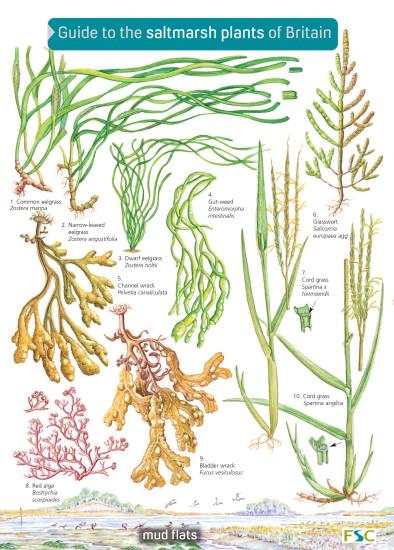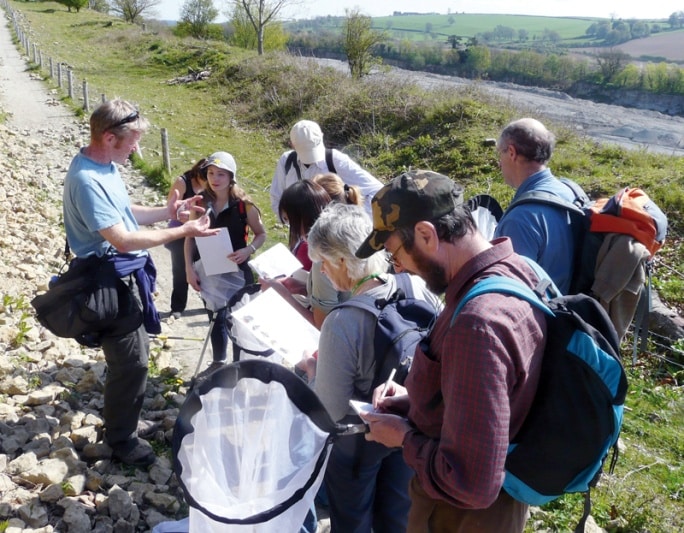Mel Cousins, Field Studies Council Marketing Assistant

People come across the Field Studies Council (FSC) at different stages of their lives and careers. Young people may come across our Guide to Seashells on holiday, or be handed Playing Field Plants by a biology teacher. These beautifully illustrated fold-out identification guides are also invaluable to those with more experience. Lichens, moths, orchids and many other taxonomic groups all have their own dedicated chart in the range, helping people to make identifications out in the field. At more advanced levels, we have AIDGAP guides for non-specialists from sixth-form age upwards, RES handbooks for experienced users and BRC atlases that map the distribution of records within Great Britain and Ireland for named groups of animals. All are published on behalf of the Biological Records Centre, part of the Centre for Ecology and Hydrology.
It is also common for someone to first discover FSC at one of our centres on a one-day or residential course. We offer specific courses on birds, flowering plants, mosses, invertebrates, habitat management, trees, reptiles, fungi, mammals and more; from an introductory level to those for individuals who need to develop specific skills in their existing field of expertise.
Our course tutors are experts in their field. Many are also experienced biological recorders, some at county level. Those visitors who attend for a day or longer find they are a wonderful way to improve identification skills as well as learn and share knowledge with others.
We have 18 FSC centres across the UK, with locations including the Scottish Highlands, Pembrokeshire Coast and the North Downs. The number continues to grow and in 2011, we opened FSC London, offering new opportunities to learn in an urban environment.
In the first instance, FSC London offered fieldwork opportunities for schools who wanted to explore the regeneration of its East London location and the impact of the Olympic Park. The centre soon expanded and, in partnership with The Royal Parks, launched a programme of natural history courses for a wider audience taking place in Bushy Park, Greenwich Park and The Regent’s Park. Short, sharp courses such as Pond Dipping, Introduction to Insects and Spring Wild Flowers are designed to encourage people to get out of doors and see what they can discover on their doorstep.

With this in mind, biological recording is encouraged across FSC with dedicated roles for biodiversity learning and special projects to capture information about rarer species. Without this work, and the work of GiGL and the other local records centres, the knowledge which we work so hard to share could be lost.
FSC run the University Certificate in Biological Recording and Species Identification in partnership with Manchester Metropolitan University. This part-time course with FSC residential course units, is designed to develop student skills in identifying a range of organisms in the field. It is a great way of gaining a truly vocational qualification and an understanding of the importance of identification and recording.
FSC has been celebrating its 70th anniversary in 2013 and using the year to both celebrate and plan for the future. Whatever route we take, it is certain that learning about and preserving knowledge of our wonderfully varied natural world will be first on the agenda.
Browse the full programme of courses
Browse FSC London’s 2014 courses
Mel Cousins has been Marketing Assistant at FSC for three years. She enjoys the varied role promoting all aspects of the environmental education charity using the website, brochures, video, social media and more. There is also the chance to visit many of FSC’s centres and experience their unique locations. Although not an experienced naturalist, there is always someone on hand within FSC to help Mel identify plant species or suggest the best place to find a particular invertebrate.
